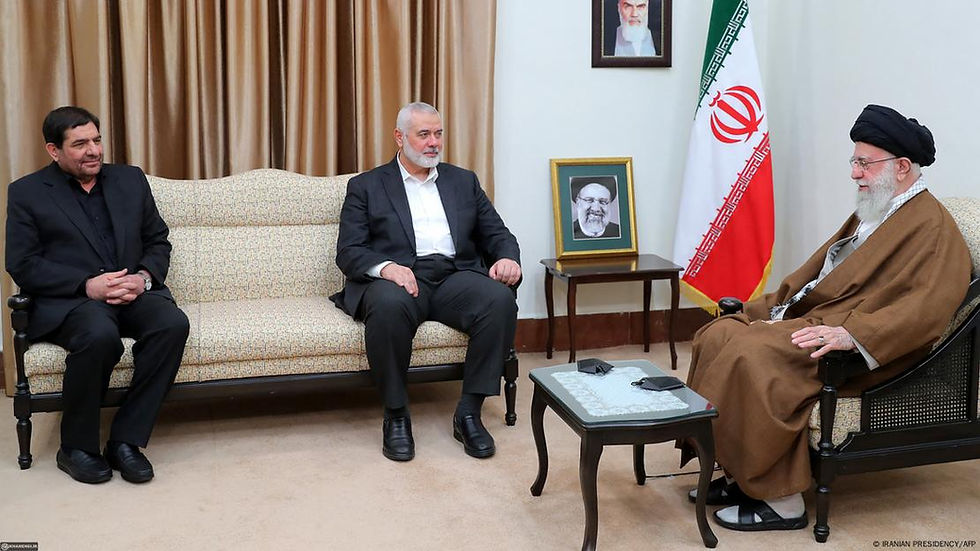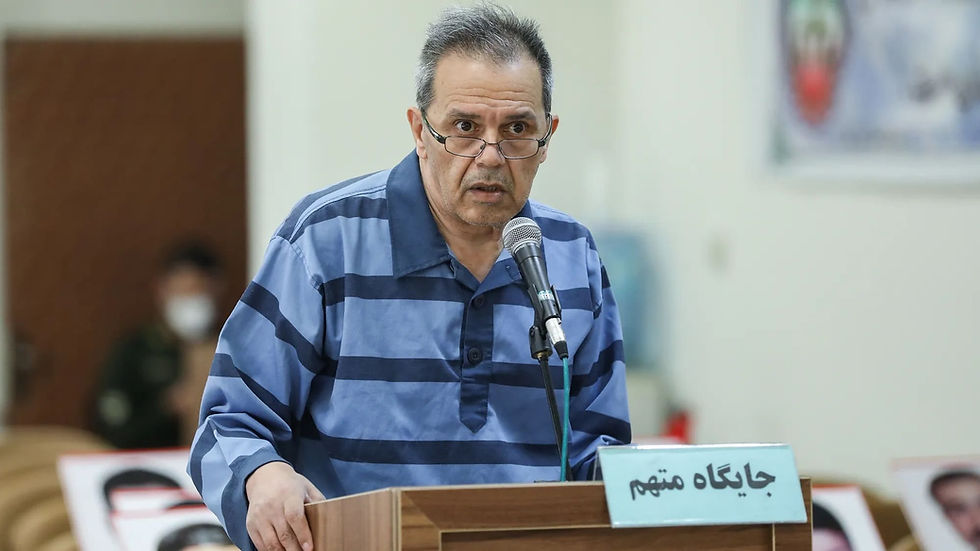Iran security failure in focus after killing of Hamas leader Ismail Haniyeh
- lenz094
- 3. Aug. 2024
- 3 Min. Lesezeit

The death of Hamas political leader Ismail Haniyeh in Tehran under the watch of Iran's Revolutionary Guard has raised questions about Iran's security apparatus.
Hamas political leader Ismail Haniyeh, who was in Tehran on Tuesday for the inauguration of President Masoud Pezeshkian, received a warm reception in the office of Ayatollah Ali Khamenei.
Two days later, the Iranian supreme leader wassaying a funeral prayerat Haniyeh's coffin.
The 85-year-old Ayatollah does not seem to have recovered from theshock of Haniyeh's killinginIran's capital. At the memorial service on Thursday, Khamenei was seen looking anxiously into the sky several times and observing his surroundings.
Conflicting accounts
Senior Hamas official Khalil al-Hayya told a news conference in Tehran on Wednesday that Haniyeh was struck "directly" by a guided projectile while he was lodging in the Iranian president's guest house in the Saadabad Palace complex.
This complex is located on a hillside in the foothills of the Alborz Mountains to the north of Tehran. The area surrounding the palace complex is freely accessible, and mountain climbing in this region is one of the capital's leisure activities.
Haniyeh could also possibly have been killed by a quadcopter, a small helicopter drone rigged with explosives, a source told the Swiss daily Neue Zürcher Zeitung and the UK-based news website Amwaj.media.
The New York Times reported on Thursday, citing "seven Middle Eastern officials, including two Iranians" that a bomb had been planted two months ago in the guesthouse where Haniyeh was staying, which is secured by Iran's Revolutionary Guard Corps.
"I looked at the pictures of the building he was in. From the minor damage to the building, I can't say exactly what was used," Fabian Hinz, an expert in drone and missile systems at the International Institute for Strategic Studies (IISS) in London, told DW.
"The damage to the building was very limited. It is quite possible that a quadcopter was used. There are quadcopters that are controlled on site, or those that are controlled via satellites and the internet. But it could also have been other munitions," he added.
A security failure for Iran
Regardless ofhow the attack took place, the fact is that Haniyeh's whereabouts were no secret. This was not the first time the Hamas political leader had been to Tehran.
He last traveled there in May 2024 to attend the funeral of President Ebrahim Raisi, who died in a helicopter crash in April.
"Haniyeh knew that Tehran was not safe for him," Guido Steinberg, Middle East and terrorism researcher at the German Institute for International and Security Affairs (SWP) in Berlin, told DW. "Tehran is not even capable of protecting its own top people, such as the nuclear scientist Mohsen Fakhrizadeh," Steinberg added, refering the the killing of one of Iran's top scientists.
Fakhrizadeh, who wasassassinated near Tehran in November 2020, was one of the best-protected people in Iran. As a key figure in Iran's nuclear program, he had been known to the global public since May 2018. Israel had repeatedly stated it considered Iran's nuclear weapons program to be threat to its security.
Now, Israel has vowed to eliminate Hamas, following theOctober 7 terrorist attacks, during which nearly 1,200 people were killed, and over 230 taken hostage, of which around 110 are thought to remain in captivity in Gaza.
Iran vows retaliation
Iran and Israel have been arch-enemies for decades. Since the 1979 revolution, the hardline Shiite leadership of the Islamic Republic does not officially recognize Israel's right to exist.
Iran considers itself as a dominant regional power and a center of resistance to what it would see as expansionism by competing powers in the region. Tehran also supports the so-called "Axis of Resistance," which includes militant groups such as Hamas and Hezbollah. Both groups are classified as terrorist organizations by the US, the European Union and others.
The Israeli government has not commented on the recent killing of the Hamas leader. However, Iran's supreme leader Ayatollah Ali Khamenei holds Israel responsible and has threatened "severe punishment."
This article was translated from German.
Second publication by courtesy of DW







Comments